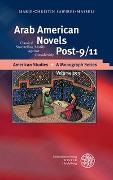Description
Product details
| Authors | Marie-Christin Sawires-Masseli |
| Publisher | Universitätsverlag Winter |
| Languages | English |
| Product format | Hardback |
| Released | 01.01.2018 |
| EAN | 9783825369217 |
| ISBN | 978-3-8253-6921-7 |
| No. of pages | 301 |
| Dimensions | 143 mm x 217 mm x 23 mm |
| Weight | 454 g |
| Series |
American Studies / A Monograph Series American Studies American Studies - A Monograph Series |
| Subjects |
Humanities, art, music
> Linguistics and literary studies
> English linguistics / literary studies
Religion, Englisch, Homosexualität, Amerikanische Literatur, Vereinigte Staaten von Amerika, USA, Englische Literatur Amerikas, Erzählen, Immigration, Tausendundeine Nacht, nine eleven, gesellschaftliche Außenseiter, arabisch-amerikanische Literatur, Alamneddine, Rabih, arabische Erzähltradition, Abu-Jaber, Diana, arabische Erzählmotive, Halaby, Laila, arabische Fabeln, Yunis, Alia |
Customer reviews
No reviews have been written for this item yet. Write the first review and be helpful to other users when they decide on a purchase.
Write a review
Thumbs up or thumbs down? Write your own review.

